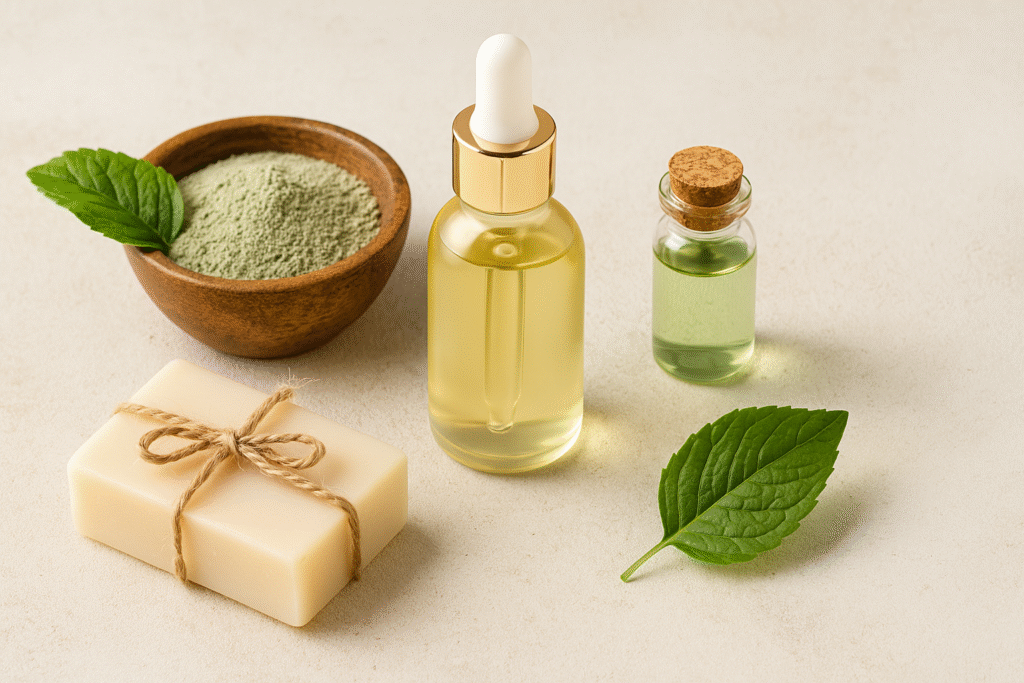Effective natural cosmetics: more than just a trend
Natural cosmetics have long had the image of being less effective than conventional products. "Smells good, but does nothing" - that's the old prejudice. But this has long been outdated. New formulas, modern technologies and in-depth knowledge of plants are proving their worth: Effective natural cosmetics exists - and it can do an amazing amount. In this article, we present natural products that can keep up with conventional cosmetics in terms of effectiveness - or even surpass them.
What makes natural cosmetics so effective today?
Highly concentrated plant extracts
Modern natural cosmetics use standardised active ingredients from medicinal plants that have a targeted effect against skin problems such as acne, wrinkles or redness.
Fermented ingredients
Fermentation improves the bioavailability of plant-based active ingredients - they penetrate deeper into the skin and work more efficiently.
✅ Synergies instead of individual substances
Natural cosmetics often combine different active ingredients that reinforce each other - e.g. aloe vera + camomile against redness.
7 natural products that work better than their reputation
🌼 1. Aloe vera gel - The moisture booster
Cools, soothes and moisturises deeply. Ideal for sunburn, irritation and dry skin.
🍵 2. Green tea extract - Antioxidant protection
Has an anti-inflammatory, antibacterial effect and protects against free radicals - perfect for blemished or mature skin.
🧄 3. Propolis - The natural antibiotic
Antibacterial and wound-healing, particularly popular for pimples, eczema and minor skin injuries.
🪵 4. Charcoal (Charcoal) - Deep cleansing & clarifying
Binds sebum and dirt particles - ideal for oily or blemished skin.
🍇 5. Grape seed oil - Anti-ageing from nature
Rich in OPC, a powerful antioxidant - protects against cell ageing and makes the skin supple.
🌸 6. Rose water - Soothing for sensitive skin
Has a balancing, slightly antibacterial effect and reduces redness - also ideal as a toner.
🌰 7. Shea butter - The moisture reservoir
Rich in unsaponifiable ingredients - regenerates, nourishes and protects the skin barrier in the long term.
Natural cosmetics vs. conventional cosmetics: what's the difference?
| Aspect | Natural cosmetics | Conventional cosmetics |
|---|---|---|
| Active ingredients | Vegetable, fermented, nature-identical | Synthetic, biotechnological |
| Conservation | Alcohol, essential oils, sorbic acid | Parabens, formaldehyde releasers |
| Compatibility | Usually very good, but check individually | Often irritating for sensitive skin |
| Environmental aspect | Sustainable, often plastic-free | Higher CO₂ footprint, microplastics |
| Effect | Long-term, gentle & regulating | Quickly visible effect, sometimes aggressive |
Conclusion: Effective natural cosmetics don't need chemicals
Anyone who believes that natural cosmetics are ineffective is underestimating the power of nature. Effective natural cosmetics relies on concentrated plant knowledge, modern extraction processes and skin-friendly formulations. The best natural products combine sustainability, compatibility and genuine effectiveness - without compromise.
